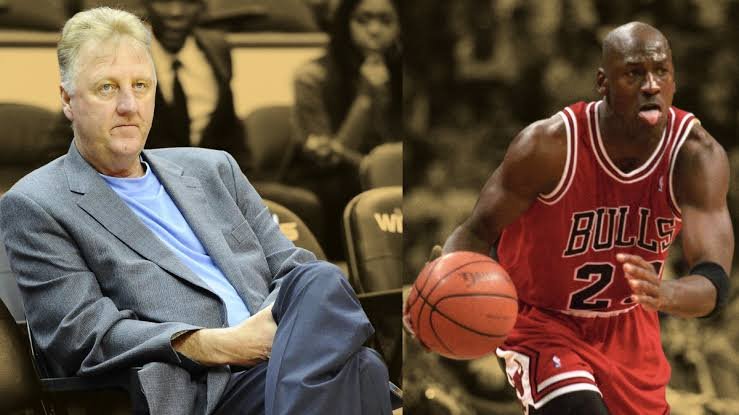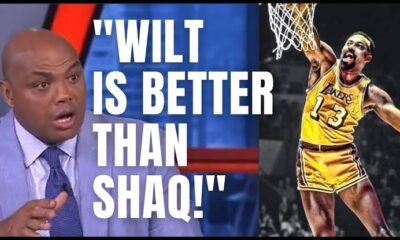Boston Celtic
Larry Bird was determined for the Indiana Pacers to overlook Michael Jordan’s greatness and focus on defeating him decisively.
Larry Bird was determined for the Indiana Pacers to overlook Michael Jordan’s greatness and focus on defeating him decisively.

Larry Bird, the legendary figure synonymous with basketball greatness both as a player and coach, once famously articulated his determination for the Indiana Pacers to disregard the awe-inspiring prowess of Michael Jordan and instead focus squarely on defeating him decisively on the court.
Bird’s competitive spirit and strategic mindset have long been hallmarks of his approach to the game. As a former player for the Boston Celtics, Bird understood the importance of mental preparation and psychological warfare in achieving victory. When he transitioned to coaching, first with the Indiana Pacers and later with the Boston Celtics, these principles continued to shape his coaching philosophy.
During the 1997-1998 NBA season, Bird was the head coach of the Indiana Pacers, a team that had emerged as a formidable contender in the Eastern Conference. However, they faced a perennial challenge in the form of Michael Jordan and the Chicago Bulls, who were in the midst of their dynasty years. Jordan, widely regarded as one of the greatest basketball players of all time, commanded unparalleled respect and admiration from opponents and fans alike.
For Bird, the task at hand was not simply about acknowledging Jordan’s greatness but devising a strategy to neutralize his impact on the game. Bird understood that Jordan’s ability to elevate his play in critical moments posed a significant obstacle to the Pacers’ aspirations of championship contention. Therefore, Bird’s statement about wanting his team to “overlook Michael Jordan’s greatness” can be interpreted as a tactical directive rather than a literal dismissal of Jordan’s skills.
In competitive sports, particularly at the highest level of professional basketball, mental fortitude and strategic planning often play pivotal roles in determining the outcome of games. Bird’s comments underscored his belief in the importance of mindset and focus in overcoming seemingly insurmountable challenges. By urging his players to focus on the task at hand — executing their game plan effectively and playing with unwavering determination — Bird aimed to instill a mindset of confidence and resilience in his team.
The rivalry between the Pacers and the Bulls during that era was emblematic of the intense competition and mutual respect that defined the NBA in the 1990s. Bird’s approach as a coach reflected his deep understanding of the dynamics of competition and the psychology of winning. He knew that success against a powerhouse like the Bulls required more than just physical prowess; it demanded a collective commitment to excellence and a relentless pursuit of victory.
Throughout his career, both as a player and coach, Bird’s leadership style was characterized by his ability to inspire and motivate those around him. His competitive fire and unwavering belief in preparation and execution set a standard of excellence that resonated with his players and fans alike. Bird’s tenure with the Pacers marked a significant chapter in his coaching legacy, as he guided the team to multiple playoff appearances and instilled a culture of competitiveness and accountability.
While Bird’s directive to overlook Jordan’s greatness may have been interpreted as a bold challenge to his team, it ultimately underscored his confidence in their abilities to rise to the occasion. In sports, as in life, overcoming challenges and achieving success often requires a combination of skill, strategy, and mental toughness. Bird’s emphasis on focusing on the task at hand served as a rallying cry for the Pacers, urging them to embrace the opportunity to compete at the highest level and pursue their championship aspirations.
In retrospect, Bird’s coaching tenure with the Pacers remains a testament to his enduring impact on the game of basketball. His ability to navigate the complexities of coaching, from Xs and Os to motivating players and managing egos, solidified his legacy as one of the sport’s greatest minds. As for his directive regarding Jordan, it reflected Bird’s unwavering belief in the power of preparation and mindset in achieving success on the basketball court.
In conclusion, Larry Bird’s statement about wanting the Indiana Pacers to overlook Michael Jordan’s greatness was a reflection of his strategic mindset and competitive spirit as a coach. It underscored his belief in the importance of mental preparation and focus in overcoming formidable opponents and achieving success in professional basketball. Bird’s legacy as a player and coach continues to inspire generations of basketball enthusiasts and serves as a reminder of the enduring impact of leadership and determination in sports.
-

 Basket Ball5 months ago
Basket Ball5 months agoNBA Legends Explain Why Wilt Chamberlain Was Better Than Everybody. Take a look at what he said ⬇️⬇️
-

 Uncategorized3 months ago
Uncategorized3 months agoWishing Anthony Delon a Happy Birthday: Celebrate with Him Today! 🎂
-

 Uncategorized3 months ago
Uncategorized3 months ago**Hollywood Icon Robert Redford Passes Away at 87
-

 Uncategorized4 months ago
Uncategorized4 months agoPat Metheny gives his explanation for retiring: “I know this would hurt my fans, but I have no other choice.”
-

 Uncategorized4 months ago
Uncategorized4 months agoAgnetha Fältskog explains why she decided to retire: “I have no choice but to do this, even though I know it will upset my fans.”
-

 Uncategorized4 months ago
Uncategorized4 months agoI bid you farewell: Pat Metheny declares his retirement date because of…
-

 Uncategorized3 months ago
Uncategorized3 months agoJoyful News: Anthony Delon and Sveva Alviti Announce They’re Expecting Their First Baby—Congratulations to the Happy Couple!
-

 NFL4 months ago
NFL4 months agoCongratulations to Lamar Jackson, who announced today that he and his wife will be getting married.












